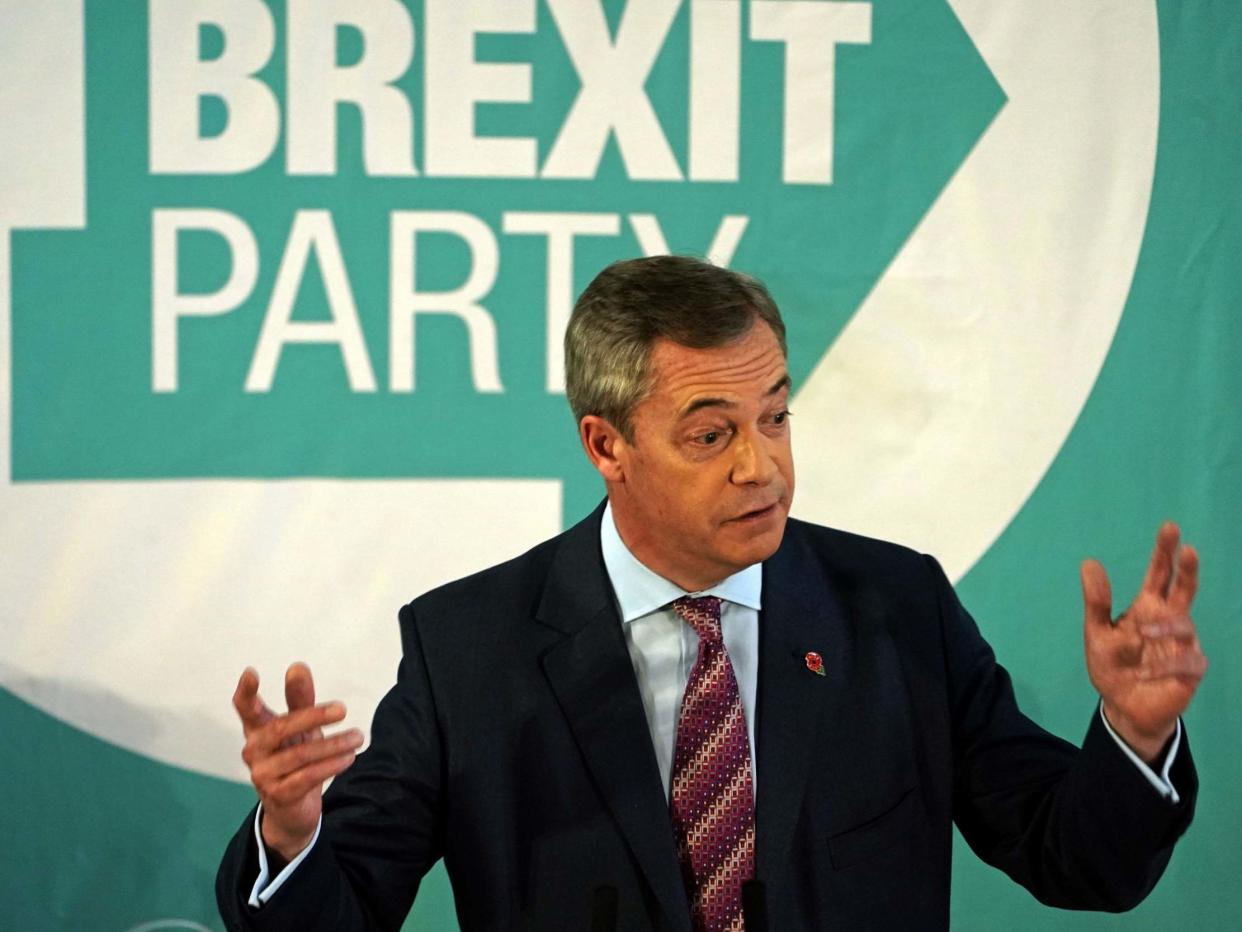The Brexit Party's decision to only stand against Labour MPs probably won't change much

Nigel Farage announced on Monday that the Brexit Party won't stand candidates against sitting Tory MPs at the election – but will stand against Labour ones.
On average, Brexit Party candidates standing in a seat take more votes from the Tories than Labour. There may be regional variations, but on the face of it this is good news for Boris Johnson's party.
Farage says he's doing it to avoid a hung parliament and save Brexit. But there are good reasons to think this might not have quite the significant effect of helping the Tories as he claims.
The first is the current state of the polls. Labour are well behind the Tories, by an average of about ten points. That might change, as it did in 2017, but if it does it's not happened yet.
This means that the marginals in play will overwhelmingly be Labour seats that the Tories want to take, rather than Tory seats that Labour are looking to take. In those seats, the Brexit Party is still standing, so any effect will still be felt.
In that respect there is no change: Tory targets like Workington, Gower, and Barrow and Furness will still be harder for the Conservatives to gain.
The second effect could be less localised but may be just as important. The Brexit Party and Conservatives are effectively in alliance. Will this change moderate Tories' views of their party?
After all, around a quarter of Tory voters backed remain in 2016. Ken Clarke, for one, has hinted that he might not vote Tory if it was in such an alliance. Will others on the Tory remain flank follow his lead and stay at home? We don't know, and probably won't until after polling day, but it is a possibility.
We also don't know where the Brexit Party will be concentrating their resources to get out their vote, so it's quite difficult to predict quite where the emphasis will be.
Of course, if the polling winds change, or they turn out to be wrong as in 2017, and it is Labour who look to be making gains, then the Brexit Party decision not to stand could end up cushioning the Tories from the effect of any second Corbyn surge. But if this starts to happen, then we're in hung parliament territory already, given the Tories do not currently have a majority.
All in all, certain stars have to align for this decision to have a serious effect. It does, of course, benefit Nigel Farage and his party: they won't have to waste money on deposits they're almost certain to lose. And they'll be less likely to get the blame if the Tories fail to win a majority Brexit doesn't happen.

